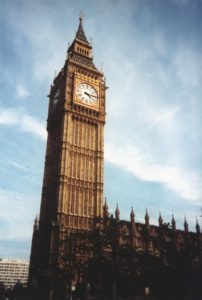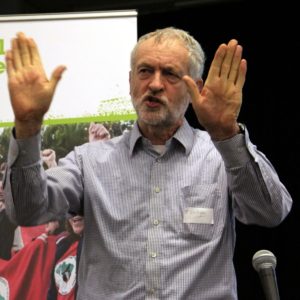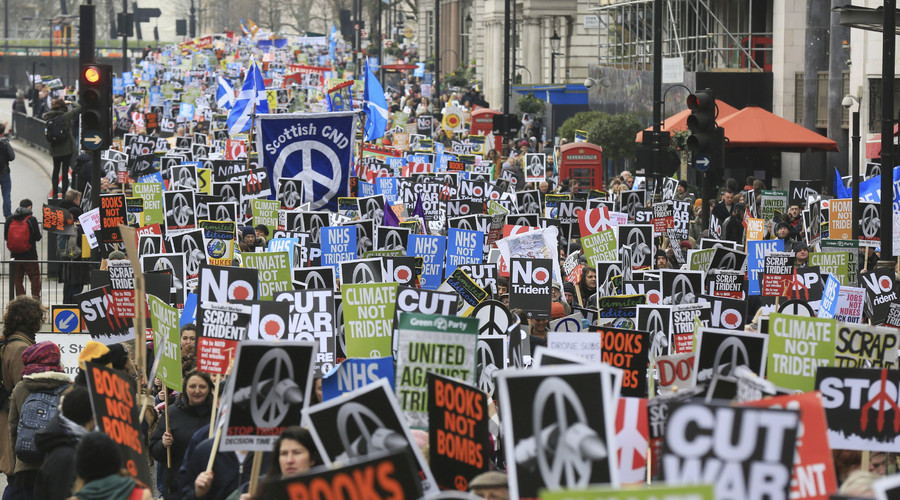According to Wikipedia, the expression “from the river to the sea” was first used by the zionist movement to describe their goal of creating a zionist state on land that was still at that time occupied mainly by Palestinians and controlled by the British Empire. It was then adopted by the PLO in the 1960s to describe their goal of liberating that land for the Palestinians.
Since then, the phrase has been used by the Israeli Likud Party, including by Prime Minister Netanyahu, to describe their goal of fully controlling and/or annexing the West Bank as well as the Gaza Strip and rejecting the concept of a Palestinian State. And it has been used by Hamas to describe their goal of fully liberating the entire region to create a viable Palestinian State.
It is also increasingly used by a wide variety of other actors to describe the goal of a “single-state solution” as opposed to a “two-state solution.” (see for example Rashida Tlaib’s reasons for using that phrase, in which she describes it as “an aspirational call for freedom, human rights, and peaceful coexistence, not death, destruction, or hate.”)
The two-state solution would mean the creation of a free, independent and viable Palestinian state alongside the existing State of Israel. That has been the goal of most Middle East peace negotiations over the last several decades. However, that goal is becoming more and more unreachable, not only because of growing hostility to the idea within Israel but also because the number of Israeli settlements on the West Bank are making a Palestinian state less and less viable (already almost an impossibility because of the separation of the two parts of Palestine between the West Bank and Gaza).
There is absolutely nothing anti-semitic or genocidal about proposing a single-state solution as opposed to a two-state solution to this conflict!
A single-state solution is one in which the current State of Israel, along with the West Bank and Gaza, would become one independent, democratic, non-sectarian state guaranteeing equal rights for all its citizens, whether Jew, Muslim, Christian or other. Whether that is any more viable a solution or likely to happen is not the point. The indefinite military occupation of the West Bank, total destruction of Gaza and denial of rights to the Palestinians living in these areas is not a viable option, either.
When it comes to Hamas and their use of this phrase, it was certainly the case prior to 2017 that Hamas was explicitly quoting Koran references that call for the “killing of Jews” as enemies of Islam. It should be pointed out, however, that there are also Old Testament references that call for Jews to kill non-Jews (see Deuteronomy 17:2-7). There is, sadly, nothing surprising about religious texts calling for the extermination of those belonging to other religions.
However, the Hamas Charter adopted in 2017 explicitly removed all such references to killing Jews and instead “affirms that its conflict is with the Zionist project not with the Jews because of their religion. Hamas does not wage a struggle against the Jews because they are Jewish but wages a struggle against the Zionists who occupy Palestine.”
Nowhere in the present Hamas Charter does it refer to killing Jews, extermination of the Jews or genocide of the Jews. Hamas does not accept the legitimacy of the State of Israel, but that is about rejecting zionism and proposing a single-state solution to the present conflict. Remember, this particular conflict did not begin on October 7th. The seeds were sown in 1917 when Lord Balfour of Britain decided to give European Zionists a piece of land that was already occupied by Palestinians. The conflict exploded in 1948 with the forced removal of roughly 80% of the Palestinian population from what became the State of Israel. And it has continued ever since because those people and their descendents have never been allowed to return to their homes or to receive compensation for the theft of their land and property.
In 2006, a majority of Palestinians voted in free and fair elections for a government to be run by Hamas. An internal struggle between Hamas and the other main Palestinian faction, Fatah, left Hamas in control only of Gaza while Fatah retained control of the West Bank.
In response to Hamas taking control of Gaza, Israel began a blockade of all goods going in and out of Gaza, other than those strictly controlled by Israel. By 2015, the World Bank was reporting the economy of Gaza was “on the verge of collapse” with 40% living in poverty and 80% dependent on food aid, mainly from UNWRA. Many human rights groups have described Gaza under blockade as an “open air prison” and living conditions there as “appalling.” This situation was going on for 17 years prior to October 7th.
And as appalling as the atrocities committed on October 7th were, they did not come out of nowhere. That is why it is entirely appropriate to be pushing for a fair and equitable solution once and for all to the long-standing conflict that has plagued this part of the world for decades, and not just focus on what happened on October 7th. And at this point, a single-state solution that gives equal rights to Jews and Palestinians living there and ends once and for all the ability of extreme right-wing zionist parties to control the government of Israel is probably the best option.








